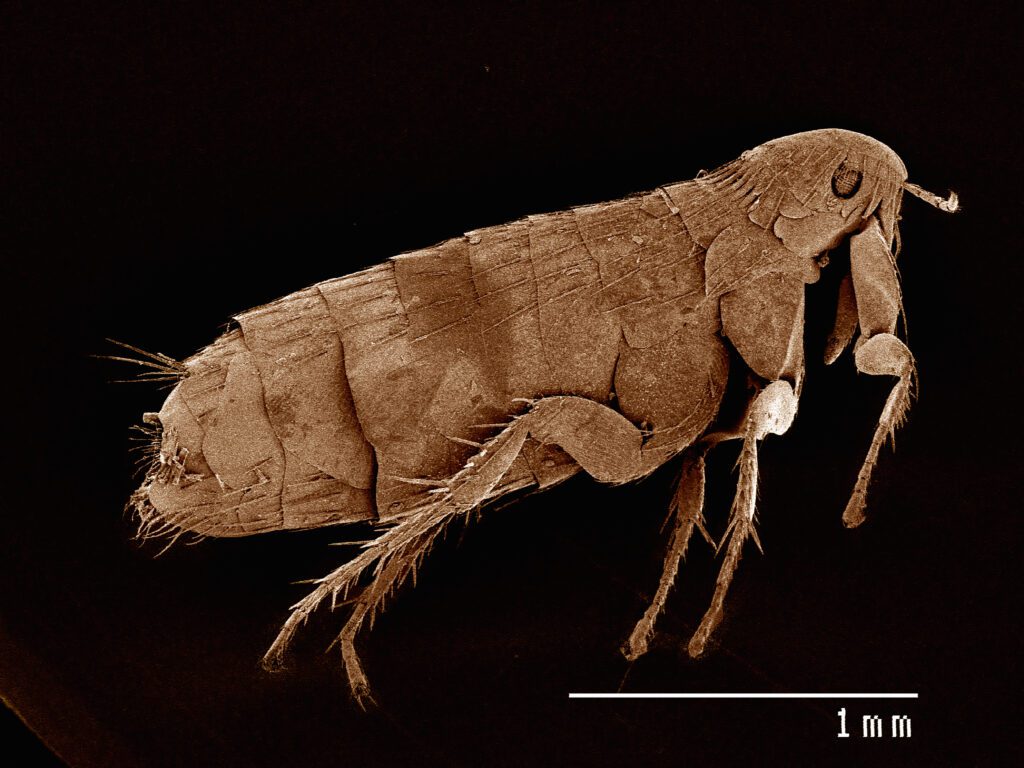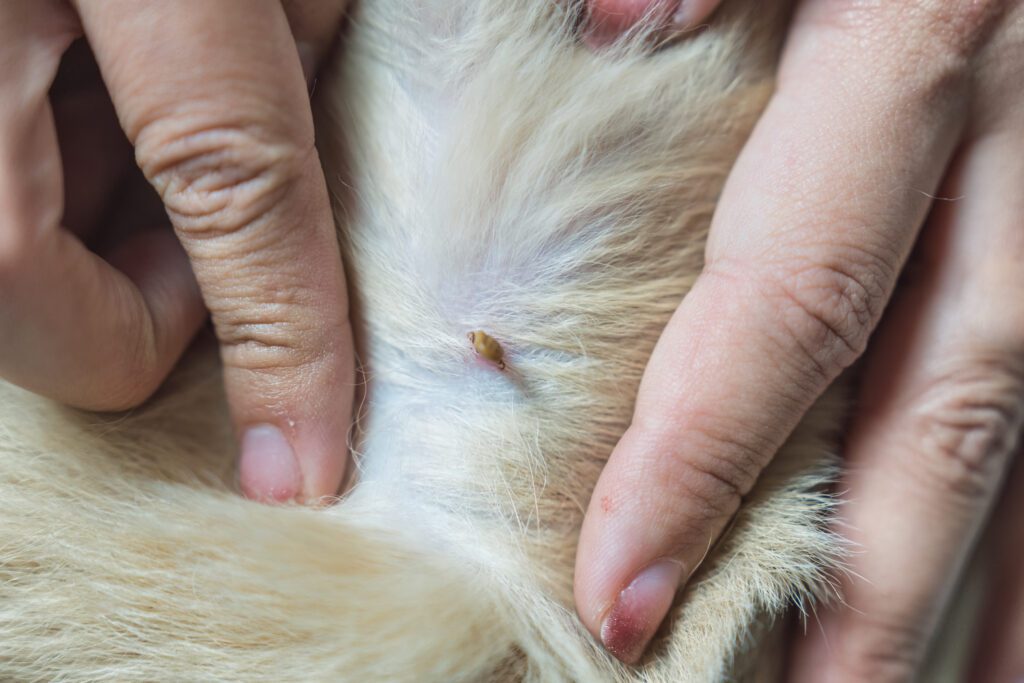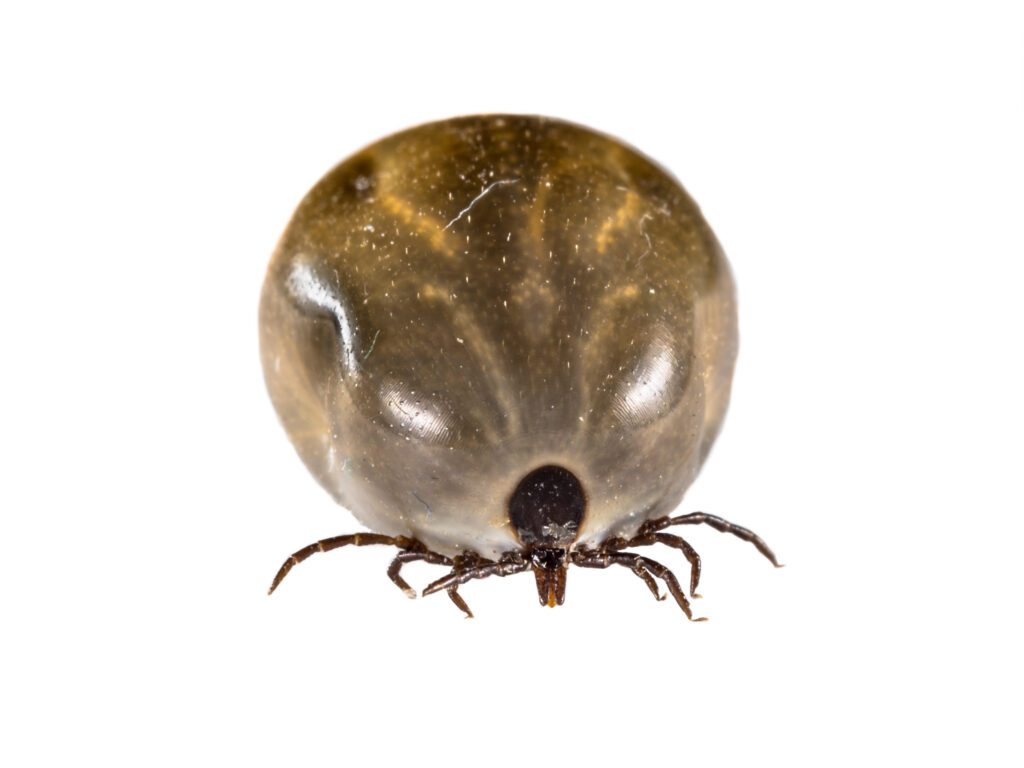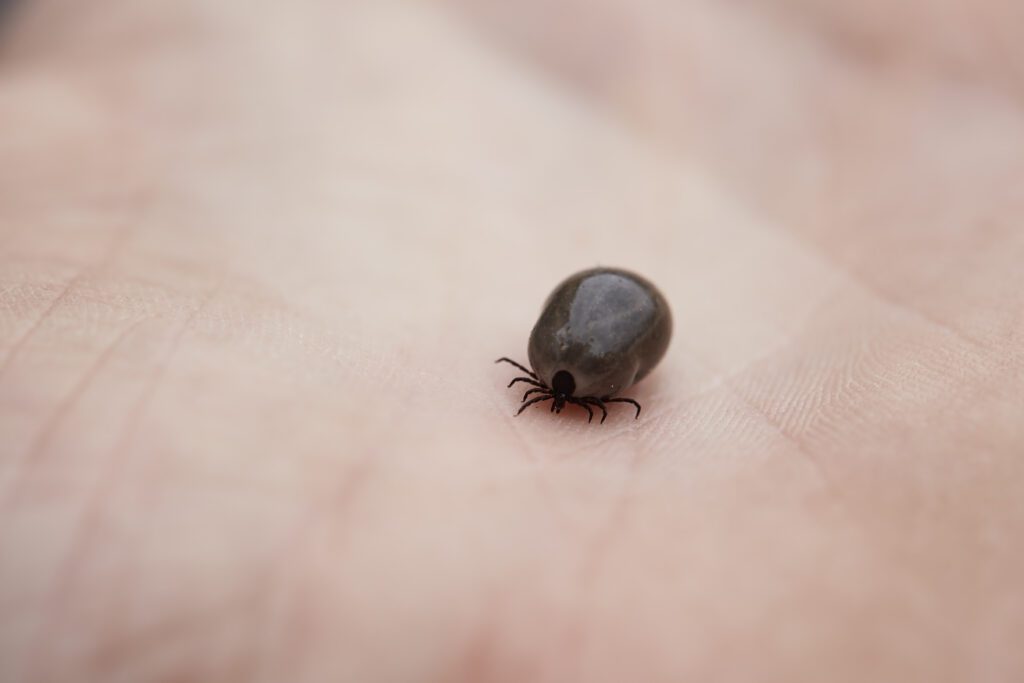Ever noticed your furry friend scratching incessantly? Itchy skin and mysterious bumps could be signs of a pesky problem: ticks and fleas. These blood-sucking hitchhikers are more than just a nuisance in the Sunshine State; they can pose serious health risks to both pets and humans.
But fear not, pet parents! This guide dives into the science behind these tiny terrors, explores eco-friendly solutions, and empowers you to reclaim your home and protect your beloved companions.
Beyond the Bite: The Science of Ticks & Fleas
While both ticks and fleas feed on blood, they have distinct characteristics and life cycles:
- Ticks: These arachnids (related to spiders) latch onto their host for days, even weeks, feeding on blood until engorged. Ticks can transmit a variety of diseases, including Lyme disease and Rocky Mountain spotted fever, making prompt removal crucial.
- Fleas: These wingless insects are jumping champions, easily transferring between pets and humans. Fleas feed frequently, leaving itchy bites and potentially triggering allergic reactions in pets. They can also transmit tapeworms.

Lifecycle Lessons: Understanding the Enemy
Knowing the lifecycle of these pests is key to effective control:
- Ticks: They progress through egg, larval, nymph, and adult stages, often needing multiple blood meals to develop. Ticks can live for months off their host or in the environment, lurking in tall grasses and wooded areas.
- Fleas: These prolific reproducers lay eggs in your pet’s fur, which then fall off and develop in your carpets, bedding, and other areas. The entire lifecycle (from egg to adult) can take as little as two weeks, leading to rapid infestations.
Nature’s Defense: Eco-Friendly Solutions
While traditional pest control methods exist, many pet owners prefer eco-friendly alternatives that are safer for their families and the environment:
- Prevention is Key: Regularly groom your pet and check for ticks and fleas. Vacuum frequently, especially in areas where your pets spend time, and wash pet bedding in hot water to eliminate eggs and larvae.
- Essential Oils: Certain essential oils, like lavender, peppermint, or cedarwood, have natural flea-repellent properties. Important: Always dilute essential oils properly and consult your veterinarian before using them on your pet.
- Diatomaceous Earth (DE): This powder dehydrates fleas and ticks, killing them on contact. Important: Choose food-grade DE and avoid inhaling the dust.
- Beneficial Nematodes: These microscopic worms are natural predators of fleas and tick larvae in your yard. You can purchase them online or at garden centers.

When Eco-Friendly Isn’t Enough: Partnering with a Pest Control Professional
For severe infestations or if eco-friendly methods seem ineffective, consider partnering with a professional pest control company like IPest Control Inc. Here’s why:
- Expert Identification: Professionals can accurately identify the specific pest species, ensuring the most effective treatment plan.
- Targeted Treatments: They utilize a variety of methods, including eco-friendly options, to target the source of the infestation and prevent future problems.
- Integrated Pest Management (IPM): This approach combines various control methods for long-term success, focusing on prevention and minimizing the use of chemicals.

Reclaim Your Home: It’s Time to Bite Back!
Don’t let these tiny terrors dictate your life. Take back control of your home and protect your loved ones with the help of IPest Control Inc.. Our experienced technicians understand the unique pest challenges faced by Florida residents and utilize a science-backed, eco-conscious approach to eliminate infestations and prevent future problems.
Call IPest Control Inc. today for a free consultation and let us help you create a bite-free haven for your family and pets!
